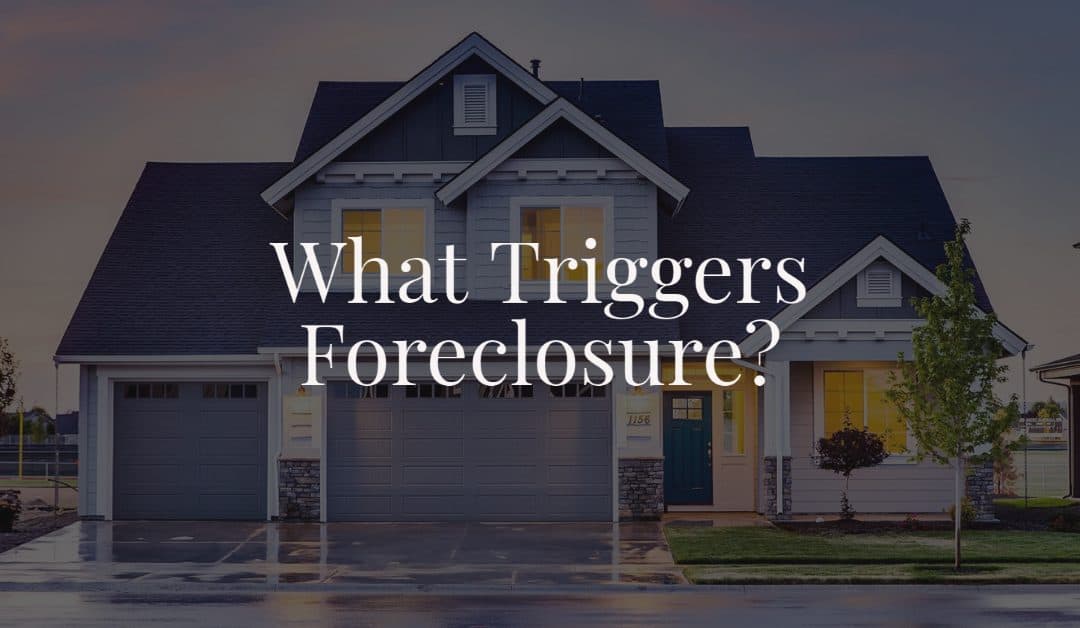No matter a person’s income level, social status, or neighborhood, foreclosure can happen to anyone.
You may think it could never happen to you, but, unfortunately, it can.
Foreclosure is a nightmare.
Sometimes we can make poor decisions that put us in a bad situation, but sometimes things entirely out of our control can put us on the fast track to foreclosure.
Below are seven things conditions, and choices that can trigger it.
Unemployment
Sudden job loss can be detrimental to a family. Most people don’t keep enough in their savings account to help them get by, should they lose their job. Sometimes only one person works while their spouse takes care of the children and home. So, if the breadwinner should lose his or her job, the family would be without income entirely.
Furthermore, if that person has difficulty finding a new job, the bills will keep piling up. This could result in getting behind three or more months on mortgage payments, easily. Unfortunately, this would put the family at significant risk for foreclosure on their home.
While losing a job is usually completely out of our control, the bills will still keep coming. Unemployment benefits rarely take the place of the missed wages and cannot pay for the lifestyle we had become accustomed to.
Credit Card Debt
Credit card debt can happen to the best of us. It’s easy to make bad spending decisions and charge things you don’t need onto a credit card.
Once the interest rate on those cards kicks in, you will be paying much more than you would be had you just bought the items with cash.
What started as a manageable minimum payment can quickly skyrocket into an amount that you can no longer afford. Credit card debt can be uncontrollable, leaving many Americans to choose between paying their credit card payments or paying their mortgage payments.
In the end, some may have to go through foreclosure to escape bankruptcy.
Adjustable-Rate Loans
Adjustable-rate loans can look appealing at first. However, you can be caught off guard once the cost accelerates as the interest does. Consumers can quickly be buried under debt and, once again, have to choose between bankruptcy and foreclosure.
Divorce
Divorce is a common cause of bankruptcy.
Married couples going through a divorce become so overwhelmed with the emotional and physical toll that it takes on their family that they forget their financial obligations entirely.
Then they are suddenly reminded that they are months behind on bills, including mortgage payments.
Sudden Relocation
Sometimes a person can be transferred to a new city for their job, or they can accept a position in a new town, suddenly.
When this happens, homeowners usually put their homes on the market, hoping it will sell quickly. They then purchase a new home in the city of their new job. Sometimes the house, located in their previous city, stays on the market for longer than anticipated.
Keeping up with two mortgages can be difficult, and the choice has to be made to let their former home go through a foreclosure.
Medical Expenses and Illness
Illness can play a large part in the loss of a home to foreclosure. The illness or injury can prevent the person from working and earning an income.
Keeping up with bills becomes next to impossible.
Workman’s’ Comp can sometimes help with the lost wages, but if you were not injured on the job, workers are often left with no pay after they have used all of their vacation or personal days.
Also, when the homeowner is sick or injured, medical bills can pile up fast. Often, you are left with the decision, once again, to decide which bills to pay.
Multiple Bills
There are other bills besides a mortgage or credit card bills.
One family could have numerous vehicle payments, a boat payment, and an ATV payment. The list goes on, not to mention insurance payments, electricity, Wi-Fi, water, gas, and grocery bills.
When you have that many monthly bills, it is easy to get thrown off and get behind. Some homeowners focus on all the other expenses because they don’t want their credit score to drop, and they neglect their mortgage.
However, this is never a good idea because it can land you in hot water and put you on the path to foreclosure.
In conclusion, foreclosure could happen to anyone of us. It dramatically affects your credit score and can prevent you from getting another mortgage for a while. There are things you can remember to help avoid it. Remember to communicate with your lender if you are having difficulty making payments. Avoiding foreclosure by negotiating a new repayment plan or refinancing works best.

